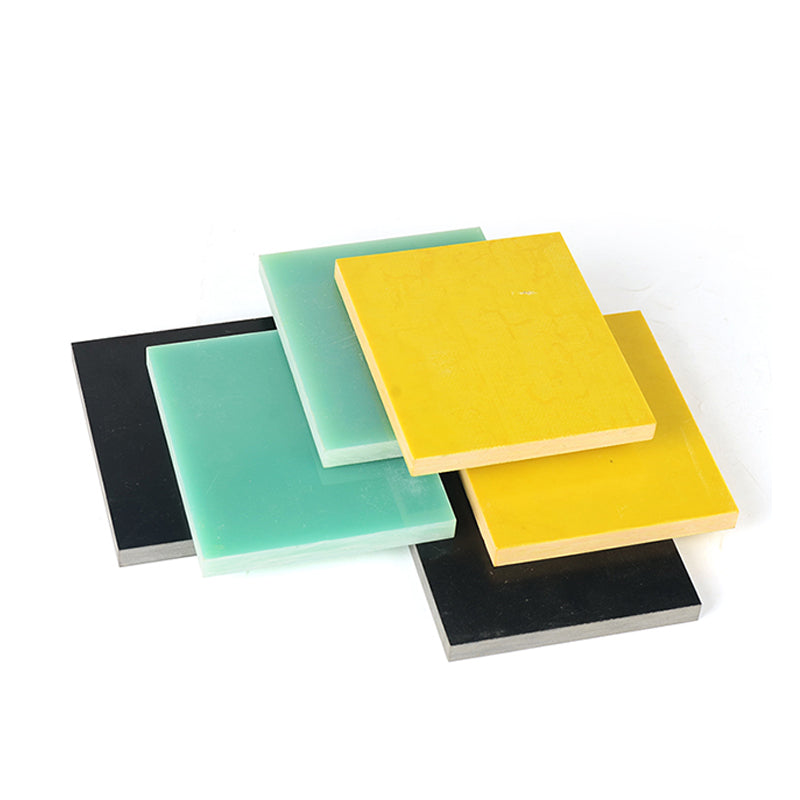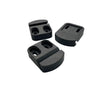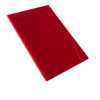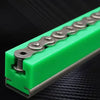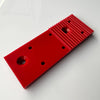PI (Polyimide) Plastic Material Advantages and Applications - A Comparison with Other High-Performance Plastics
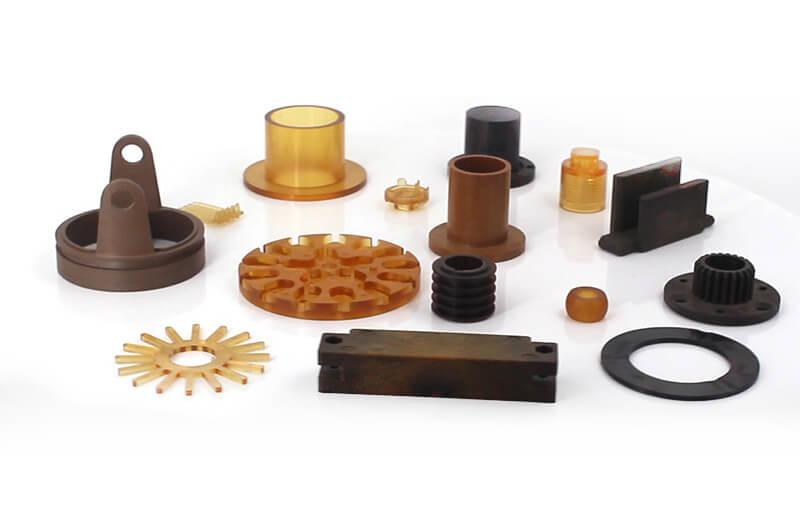
PI (Polyimide) plastic material is a high-performance engineering plastic with outstanding properties, such as heat resistance, chemical resistance, mechanical properties and electrical properties. It is widely used in various fields, such as aerospace, electronics and electrical, automotive, medical, energy and more. In this article, we will compare PI (Polyimide) plastic material with other high-performance plastics, such as PEEK, PPS, PAI and others. We will also introduce some specific applications and roles of PI (Polyimide) plastic material in each field.
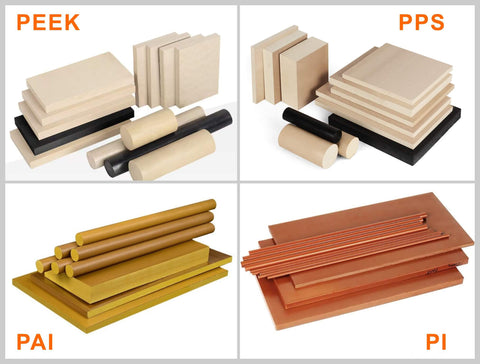
Comparison of PI (Polyimide) Plastic Material with Other High-Performance Plastics
PI (Polyimide) plastic material belongs to the class of thermosetting plastics, which means it cannot be melted or reshaped by heating. It is formed by the reaction of a dianhydride and a diamine, resulting in a polymer chain containing imide groups. PI (Polyimide) plastic material has a high glass transition temperature (Tg), which indicates its ability to resist deformation under heat. It also has a high decomposition temperature (Td), which indicates its ability to resist degradation under heat. PI (Polyimide) plastic material can withstand temperatures up to 500°C for short periods and up to 300°C for long periods.
Other high-performance plastics include thermoplastic plastics, such as PEEK, PPS, PAI and others. They can be melted and reshaped by heating, which makes them easier to process and recycle. However, they also have lower heat resistance and mechanical strength than PI (Polyimide) plastic material. The table below shows a comparison of some key properties of PI (Polyimide) plastic material and other high-performance plastics.
|
Property |
PI (Polyimide) |
PEEK |
PPS |
PAI |
|
Tg (°C) |
260-360 |
143 |
90 |
270 |
|
Td (°C) |
500-550 |
550 |
490 |
530 |
|
Tensile strength (MPa) |
80-150 |
90-100 |
70-80 |
120-130 |
|
Elongation at break (%) |
5-10 |
30-50 |
2-3 |
5-10 |
|
Flexural modulus (GPa) |
3-5 |
3.5-4.0 |
3.0-3.5 |
4.0-4.5 |
|
Coefficient of thermal expansion (10^-6/K) |
20-50 |
45-50 |
50-55 |
30-35 |
|
Dielectric constant (1 kHz) |
3.0-3.5 |
3.2-3.3 |
3.6-3.7 |
3.8-4.0 |
As can be seen from the table, PI (Polyimide) plastic material has higher Tg, Td, tensile strength and flexural modulus than other high-performance plastics. It also has lower coefficient of thermal expansion and dielectric constant than other high-performance plastics. These properties make PI (Polyimide) plastic material more suitable for applications that require high heat resistance, mechanical strength and electrical insulation.
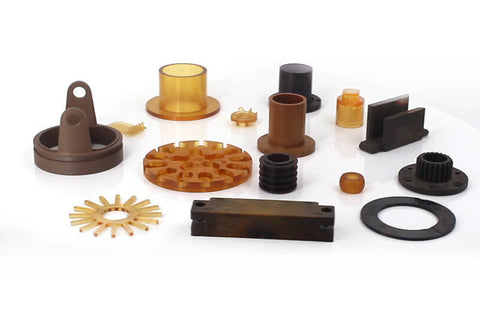
Applications and Roles of PI (Polyimide) Plastic Material in Various Fields
PI (Polyimide) plastic material has a wide range of applications and roles in various fields, such as aerospace, electronics and electrical, automotive, medical, energy and more. Here are some examples of its specific applications and roles in each field.
In aerospace, PI (Polyimide) plastic material is used for making high temperature resistant components, such as engine parts, heat shields, insulation materials, etc. It can also be used for making lightweight and strong composites, such as carbon fiber reinforced PI (Polyimide), which can reduce the weight and fuel consumption of aircrafts.
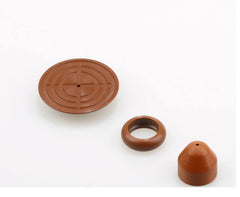
In electronics and electrical, PI (Polyimide) plastic material is used for making flexible printed circuit boards (FPCBs), which can bend and fold without breaking. It can also be used for making thin film transistors (TFTs), which are the key components of flat panel displays, such as liquid crystal displays (LCDs) and organic light emitting diodes (OLEDs).
In automotive, PI (Polyimide) plastic material is used for making high performance parts, such as brake pads, clutch plates, piston rings, etc. It can also be used for making sensors, actuators, connectors, etc., which can withstand high temperature and vibration.
In medical, PI (Polyimide) plastic material is used for making biocompatible devices, such as implants, catheters, stents, etc. It can also be used for making drug delivery systems, such as microcapsules, nanofibers, etc., which can release drugs in a controlled manner.
In energy, PI (Polyimide) plastic material is used for making high temperature fuel cells, which can convert chemical energy into electrical energy. It can also be used for making solar cells, which can convert solar energy into electrical energy.
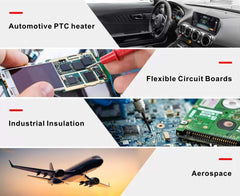
PI (Polyimide) plastic material is a high-performance engineering plastic with advantages over other high-performance plastics in terms of heat resistance, mechanical strength and electrical insulation. It has a wide range of applications and roles in various fields, such as aerospace, electronics and electrical, automotive, medical, energy and more. It is a versatile and valuable material for many industries and applications.
If you are looking for a professional PI (Polyimide) customization service provider, we recommend you to visit www.beeplastic.com website. They offer high-quality PI (Polyimide) products with various shapes, sizes and specifications. They can also help you with design, development and testing of your PI (Polyimide) products. They have rich experience and expertise in PI (Polyimide) processing and application. They can provide you with the best solutions and services for your PI (Polyimide) needs.
To learn more about their PI (Polyimide) products and services, please visit their website or contact them by email. They will be happy to answer your questions and provide you with a free quote. They will also give you a 10% discount if you mention this blog article when you contact them.
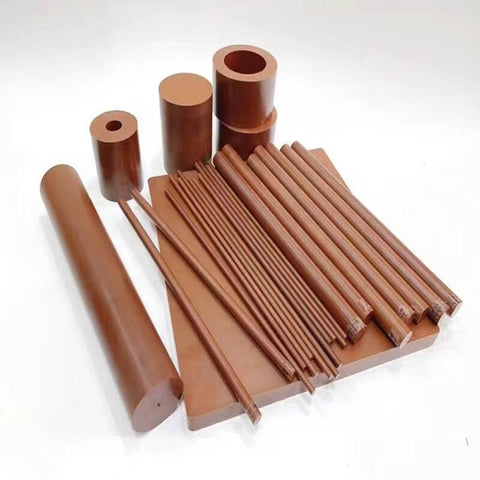
-
Posted in
# mold designs, #PAI Plastic, #PEEK, #PI (Polyimide) Plastic Material, #PI (Polyimide) sheet, #PI (Polyimide)rod, #plastic, #PPS plastic, #PPS plastic material

